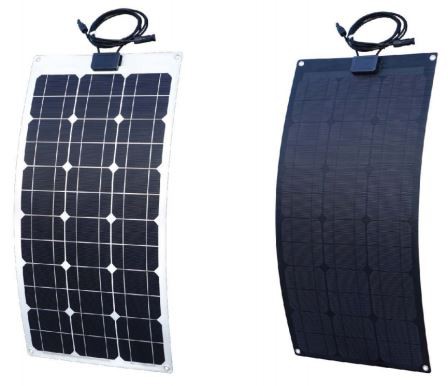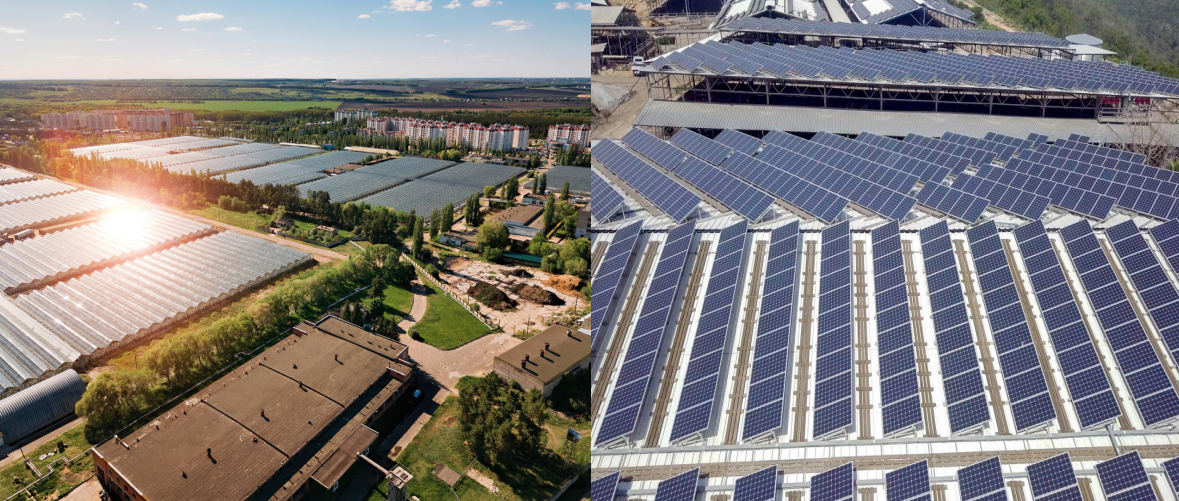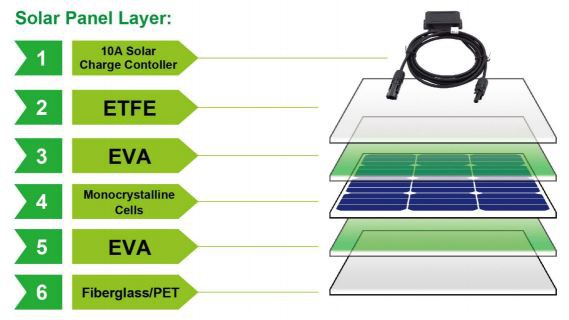Key Features and Functions of Flexible Solar Panels You Should Know
In the rapidly evolving field of renewable energy, flexible solar panels have emerged as a revolutionary solution, offering versatility, portability, and efficiency. Unlike traditional rigid panels,flexible solar panels can adapt to a variety of surfaces and environments, making them ideal for modern, mobile, and space-conscious energy applications.
As a leading manufacturer of high-quality solar panels, PRBS is at the forefront of innovation, delivering durable and efficient flexible solar solutions to customers around the world. In this article, we will explore the key features and functions of flexible solar panels, and why PRBS is your ideal partner for harnessing the power of the sun.
What Are Flexible Solar Panels?
Flexible solar panels are lightweight photovoltaic modules made using thin-film solar cells or ultra-thin crystalline silicon cells. Unlike conventional glass-covered solar panels, flexible panels are built on bendable materials such as plastic or metal foil, allowing them to flex and conform to irregular surfaces without compromising energy output.
This design opens up possibilities for solar power where traditional panels are impractical, such as on RVs, boats, tents, curved roofs, and portable devices.

Key Features of Flexible Solar Panels
1. Flexibility and Adaptability
Bendable Construction: Flexible panels can typically bend up to 30 degrees or more without damage, allowing installation on curved surfaces.
Application Diversity: Suitable for boats, vehicles, backpacks, and non-flat building structures.
2. Lightweight and Portable
Reduced Weight: Flexible solar panels are significantly lighter than rigid glass panels, easing transport and installation.
Easy to Handle: Ideal for temporary setups, mobile power needs, and areas where weight constraints are critical (e.g., on RVs or yachts).
3. Durability and Resistance
Weather Resistance: High-quality flexible panels, such as those manufactured by PRBS, are designed to withstand UV exposure, rain, wind, and extreme temperatures.
Mechanical Strength: Many flexible panels are engineered to resist mechanical stresses like vibrations and slight impacts.
4. High Efficiency
Advanced Materials: Modern flexible panels often use highly efficient monocrystalline cells, ensuring excellent energy conversion even in a compact, lightweight format.
Low-Light Performance: Capable of generating power under cloudy conditions, making them reliable in varied climates.
5. Easy Installation
No Heavy Frames: Flexible solar panels often come with adhesive backing, grommets, or mounting holes, allowing for easy setup without specialized tools.
Minimal Structural Requirements: No need for heavy support structures that traditional panels require.
Main Functions and Applications of Flexible Solar Panels
Thanks to their innovative design, flexible solar panels serve a wide range of functions across different industries:
1. Recreational Vehicles (RVs) and Campers
Off-Grid Freedom: Enables travelers to power appliances, lighting, and electronic devices without relying on campsite hookups.
Roof Curvature Adaptation: Panels fit seamlessly on curved or irregular RV roofs.
2. Marine Applications
Power on the Water: Ideal for boats, yachts, and fishing vessels where traditional panels are too heavy or bulky.
Saltwater Resistance: PRBS flexible panels are built to withstand marine environments.
3. Portable Solar Solutions
On-the-Go Power: Integrated into backpacks, tents, and mobile chargers for outdoor enthusiasts.
Emergency Backup: Provides vital energy in remote or disaster-struck areas.
4. Building-Integrated Photovoltaics (BIPV)
Architectural Freedom: Applied directly onto building facades, domed structures, and non-traditional surfaces to create energy-generating structures.
Aesthetic Appeal: Offers a sleek, unobtrusive look compared to bulky traditional panels.
5. Agricultural and Remote Installations
Solar for the Fields: Powers remote irrigation systems, electric fences, and monitoring equipment without requiring heavy infrastructure.
Resilient and Reliable: Designed to withstand outdoor, rugged conditions.

Why Choose PRBS Flexible Solar Panels?
Selecting a reliable and experienced manufacturer is crucial when investing in flexible solar technology. Here’s why PRBS stands out:
Professional Manufacturing Expertise: PRBS specializes in producing high-quality, technologically advanced solar panels using premium materials and precise craftsmanship.
Strict Quality Control: Every panel undergoes rigorous testing to ensure performance, durability, and efficiency standards are met or exceeded.
Wide Product Range: PRBS offers flexible solar panels in various sizes, wattages, and custom designs to suit different project needs.
Sustainability Commitment: We prioritize environmentally friendly production processes and support global clean energy initiatives.
Responsive Customer Service: From pre-sale consultation to after-sales support, PRBS is committed to providing exceptional customer experiences worldwide.
With PRBS flexible solar panels, you get products that are not only efficient but also engineered for real-world performance across countless applications.
Frequently Asked Questions (FAQs)
Q1: Can PRBS flexible solar panels be walked on?
A1: Some models are designed to tolerate light foot traffic, but in general, we recommend minimizing direct heavy pressure to prolong the panel’s lifespan.
Q2: How do flexible panels perform compared to traditional rigid panels?
A2: While flexible panels may have slightly lower efficiency in some cases, PRBS panels are engineered for high performance, offering excellent power output with added advantages of flexibility and lightweight design.
Q3: Are PRBS flexible panels compatible with standard solar charge controllers?
A3: Yes, our flexible panels work seamlessly with most common MPPT and PWM solar charge controllers.
Q4: How long do PRBS flexible solar panels last?
A4: With proper installation and care, PRBS flexible panels can deliver strong performance for up to 10-15 years, depending on environmental conditions and usage.

Conclusion
Flexible solar panels are transforming how and where solar energy can be utilized. Offering portability, versatility, and reliable energy generation, they have become a popular choice across industries and personal use cases alike.
When you choose PRBS, you're not just investing in a solar panel — you're investing in quality, innovation, and trusted expertise. Whether you need power on the move, at sea, or integrated into your building design, PRBS flexible solar panels deliver dependable performance and help you harness the sun’s potential — wherever you are.
How Photovoltaic Modules Work: From Sunlight to Electricity
www.prbsenergy.com
PRBS

